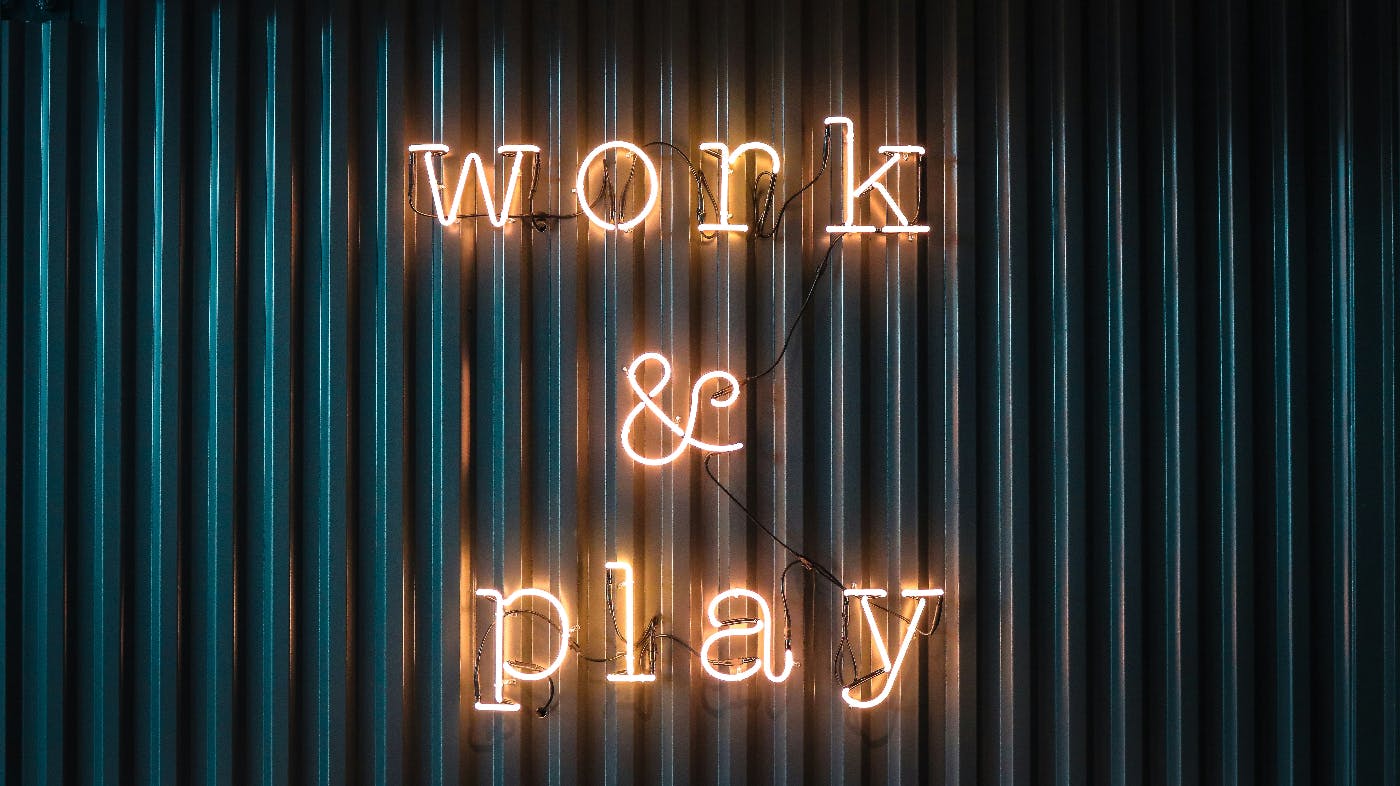
Respect is like one of those mythical creatures you hear about but can’t quite pin down. Everyone has a different idea of what it looks like.
Nothing is more despicable than respect based on fear.Quote:
Albert Camus
There is a new face in the office. A new hire has arrived, and everyone is excited, right? New blood, world views, and new things to discuss and learn. Welcoming a new person can be fun. And with a new person in the office, it’s like seeing the office with fresh eyes for everyone. For example, when you invite someone to your home for the first time, and they comment on everything, you see your home in a new way. It’s exciting.
Naturally, we’ll all be on our best behavior. There is no need to terrify the new person with our in-house hijinx just yet. We’ll break them in slowly, and before you know it, they will be in on all the jokes, laughing at the unbearable clients and talking about their political and religious views in a loud voice in the break room.
Wait. What?
Is … is that right? Is that fair? Is that, gasp, respectful?
I have been thinking about respect lately for a number of reasons, and I am in a bit of a quandary. I have always been taught that respect is earned and not given. Yet, if you watch YouTube videos for any length of time, you will see videos of people in fast food joints screaming at the poor people behind the counter about their order being messed up and following it with, “You need to respect me.” or “I will not tolerate this disrespect.”
Do we owe respect to someone who is screaming at us, throwing things, using foul language, and acting like a giant horse’s petootie? How does that person or any person we have brief encounters with earn our respect?
What about this new person in the office who goes on political rants in the breakroom when most people just need that cup of coffee and a bit of mindless morning chatter to get them in the swing of a new workday?
So today, I ask, what is respect, who do we give it to, how do we earn it, and what do we do about people who just demand respect without working at all to earn it? Respect is a huge problem right now in our swiftly changing world.
Respect: A Definition (Sort Of)
Respect is like one of those mythical creatures you hear about but can’t quite pin down. Everyone has a different idea of what it looks like. For some, respect is a baseline—it’s the minimum level of courtesy you extend to another human simply because they exist. For others, it’s something you earn through actions and character. And then there are those who treat respect like a vending machine: insert one compliment and expect a flood of adoration in return.
But here’s the thing: respect isn’t one-size-fits-all. It shifts depending on context, relationships, and even mood. It’s also deeply personal, which is why conversations about respect often veer into murky territory. Let’s break it down into a few categories to make sense of it.
A person’s a person, no matter how small.Quote:
Dr. Seuss

Baseline Respect: The Starting Point
Let’s talk about baseline respect. You know, the kind where you don’t throw things at the cashier because your fries are cold. It’s the kind of respect that says, “I acknowledge your humanity, even if I’m not thrilled with the situation.” It’s about recognizing that the person in front of you is doing their best (hopefully) and, regardless of how the situation unfolds, they’re worthy of a minimum level of decency.
But here’s where it gets tricky. If you’ve spent any time on YouTube, you’ve probably stumbled upon those infamous fast-food freakout videos. Someone’s order gets messed up—maybe the burger doesn’t have enough pickles or the fries aren’t piping hot—and suddenly, all hell breaks loose. Ketchup packets are hurled like grenades. A verbal assault begins. And without fail, the pinnacle of the meltdown is the screeched demand: “You need to respect me!”
Do we, though? Do we owe respect to someone behaving like a toddler who missed nap time? My gut says no. Respect in its most basic form—civility, politeness, the ability to not behave like a reality TV contestant in a dramatic elimination round—should be a given. But there’s a line. And when someone crosses into abusive or threatening territory, that baseline respect is forfeited.
Here’s the thing: Respect isn’t a free-for-all. It’s a kind of social currency. The expectation of baseline respect comes with an implicit agreement: “I won’t yell at you for a mistake; you won’t scream at me for not reading your mind.” When someone breaks that unspoken contract—when they throw a tantrum over a messed-up latte or bark insults at a server—it’s hard to keep extending that initial grace. At some point, you have to ask: If they can’t meet the minimum requirements for decency, why should I?
It’s like showing up to a potluck empty-handed and still expecting to take home leftovers. Worse, it’s like demanding to take the leftovers home, shouting about how you’re the guest of honor, even though no one invited you to begin with. Respect is reciprocal, even at its most basic level.
That said, baseline respect is also about you, not just them. It’s about how you choose to move through the world. You can decline to engage with someone’s tantrum without stooping to their level. Respect doesn’t mean being a doormat or tolerating abusive behavior—it means holding onto your own dignity, even when someone else has clearly lost theirs. If you maintain your calm, you don’t just uphold the social contract but also keep your integrity intact.
Ultimately, baseline respect is the glue that holds society together. It allows us to coexist in coffee shops, grocery stores, and, yes, even fast-food joints without devolving into chaos. And while not everyone will rise to meet that standard, we can still choose to set the tone. After all, when the world feels like it’s teetering on the edge of a collective tantrum, sometimes the best thing you can do is stay grounded—and maybe hold onto those ketchup packets for dear life.
Respect in the Workplace: A Case Study
Now, back to our new hire. In the office, respect often starts as a polite default. We smile, make small talk, and offer to show them where the good coffee is hidden. It’s a little dance we do to establish rapport. But what happens when the new person starts shaking things up?
They may challenge the unspoken office rules. They microwave fish for lunch. They leave the copier jammed. Or, worse, they start loudly sharing their political opinions in the break room when all you wanted was five minutes of blessed silence before your 10 a.m. meeting. Suddenly, the vibe shifts. That initial respect begins to waver.
Here’s the thing: Respect in the workplace isn’t just about being polite. It’s about mutual understanding. It’s about recognizing that we’re all trying to survive the 9-to-5 grind without losing our minds. When someone disrupts that balance, it feels disrespectful, even if they don’t mean it to be.
But let’s flip the script. Are we respecting them? It’s easy to judge someone for not fitting into the office culture, but maybe we’re not giving them a fair shot. Maybe they’re still learning the ropes. Maybe they microwave fish because they don’t know the unspoken rule yet. Respect, in this case, might mean giving them the benefit of the doubt and having a little patience.

The Issue of Demands: When Respect Feels Forced
Let’s pivot back to our fast-food friend for a moment—the one screaming at the poor cashier, ketchup packets flying. Demanding respect is a tricky thing. It’s like trying to force someone to like you: the more you insist, the more it slips through your fingers. Respect isn’t something you can shout into existence. It’s something you earn through actions, how you treat others, and the example you set.
But here’s a question: Why do people demand respect so loudly in the first place? Why is “You need to respect me!” the battle cry of so many tantrums? I think it often comes down to one thing: insecurity. When someone feels disrespected, it’s usually because they don’t feel seen or heard in the way they want to be. Maybe they’ve been dismissed too many times in the past. Perhaps they’ve learned (wrongly) that yelling is the only way to make people pay attention. Whatever the root cause, their demand for respect is less about the present moment and more about unresolved frustrations bubbling to the surface.
Here’s the irony: the louder someone demands respect, the less likely they are to get it. Think about the dynamics at play. When someone is screaming, throwing tantrums, or insisting on their superiority, what’s your immediate reaction? If you’re anything like me, it’s probably not, “Wow, what a respectable individual.” More likely, it’s, “Yikes, I need to get away from this person immediately.” Their actions don’t inspire respect; they alienate people instead.
It’s a self-defeating cycle. The more someone demands respect without earning it, the more they erode the very thing they’re after. It’s like planting a garden but stomping on the seeds every time you check to see if they’ve grown. Respect needs time and nurturing—it doesn’t sprout under pressure.
Why Demands Feel Forced
There’s another layer to this: the idea of entitlement. Some people demand respect as if it’s their birthright as if simply existing is enough to warrant admiration. But respect doesn’t work like that. Sure, there’s a baseline level of civility everyone deserves (no ketchup-packet-hurling, for instance), but the kind of respect that carries weight—the kind that leads to genuine trust and admiration—has to be built.
When someone tries to shortcut that process, it feels forced. Think about those moments when someone insists on being addressed by a title, not because they’ve earned it in your eyes but because they crave the validation it represents. “Call me sir.” “You’ll address me as ma’am.” The title might be technically correct, but the demand feels hollow if it’s not backed up by actions that inspire respect.
The Role of Boundaries
So what do we do when faced with someone demanding respect without earning it? The answer isn’t to fight fire with fire. Yelling back or stooping to their level only escalates the situation and leaves everyone feeling worse. Instead, the key is to hold your ground. Extend basic civility, yes, but don’t let someone else’s bad behavior dictate your own.
Respecting yourself enough to set boundaries is crucial here. Boundaries aren’t just about protecting your time or energy but also about maintaining your integrity. When someone crosses the line—whether it’s through yelling, manipulation, or disrespect—you have every right to stand firm. Politely but firmly stating, “I’m willing to have this conversation when we can both speak calmly,” is a way of respecting yourself and the other person (even if they don’t deserve it at the moment).
You’re sending a clear message by setting boundaries: Respect is a two-way street. If they want your respect, they need to meet you halfway.

Choosing Civility Without Capitulation
In the face of bad behavior, it's tempting to abandon civility altogether. After all, why should you be polite to someone who’s screaming at you? But here’s the thing: staying calm and respectful isn’t about rewarding their behavior—it’s about maintaining your own dignity.
When you choose civility, you’re not letting them “win.” You’re choosing not to let their behavior pull you into the mud. You’re modeling what respect looks like, even when it’s not being reciprocated. And sometimes, that example is enough to shift the dynamic. Other times, it’s not—but at least you walk away with your head held high.
The Power of Earned Respect
At the end of the day, respect earned feels worlds different from respect demanded. Earned respect is built on trust, understanding, and mutual regard. It’s not about power plays or loud voices; it’s about the quiet, consistent actions that demonstrate character. And here’s the kicker: the people who genuinely earn respect rarely have to demand it. Their actions speak for themselves.
So the next time someone shouts, “You need to respect me!” ask yourself this: Are they modeling the behavior they’re asking for? Are they giving respect to get respect? And if the answer is no, don’t be afraid to hold your ground. Respect isn’t a gift you give on command—it grows in the spaces where decency and mutual understanding thrive.
Respect for ourselves guides our morals, respect for others guides our mannersQuote:
Laurence Sterne
Respect as a Two-Way Street
Now, let’s bring it all together. Respect, at its core, is a two-way street. It’s not just about giving or receiving—it’s about creating a mutual exchange.
In the workplace, this might mean listening to your new colleague’s ideas, even if they differ from yours. It might mean speaking up when someone crosses a line but doing so with kindness and clarity. It means treating others with the same dignity you’d want for yourself outside the workplace, even when it’s not easy.
But let’s be honest: Respect is messy. It’s not always clear-cut, and it doesn’t always come naturally. It requires effort, empathy, and a willingness to see things from someone else’s perspective.

Practical Takeaways
So, how do we navigate respect in a world that feels increasingly disrespectful? Here are a few thoughts:
- Start with Civility: Treat everyone with a baseline level of politeness, even if they’re not your favorite person. It costs you nothing and might just make someone’s day a little better.
- Set Boundaries: Being respectful doesn’t mean being a doormat. If someone is acting out of line, it’s okay to push back—calmly and firmly.
- Model the Respect You Seek: Actions speak louder than words. Show others what respect looks like by listening, empathizing, and being consistent.
- Reassess Your Expectations: Are you demanding respect without earning it? Are you judging someone too harshly without giving them a chance? Take a moment to reflect.
I need three days in a mediation retreat, some healthy food, and a 120-mile bike ride before I can quote you on how I think about respect.Quote:
Mike Harker, CEO THoughtLab
Summing Up
Respect is a cornerstone of human interaction, but it’s also one of the most misunderstood concepts out there. It’s earned, it’s given, and sometimes, it’s demanded—but not always deserved. As our world continues to change and our interactions become more complex, we have to keep asking ourselves: What does respect look like, and how do we navigate it without losing ourselves?
So, the next time you’re faced with a screaming customer, a political ranter in the break room, or a new colleague microwaving fish, ask yourself: How can I show respect in this moment—and how can I protect my own dignity in the process?
And maybe, just maybe, keep the fish at home. Respect goes both ways.

